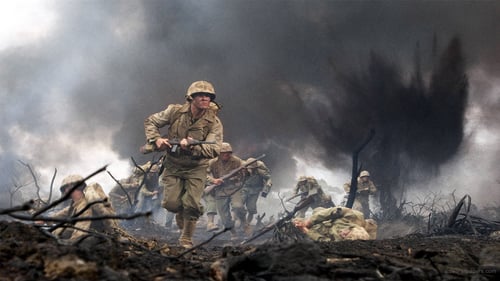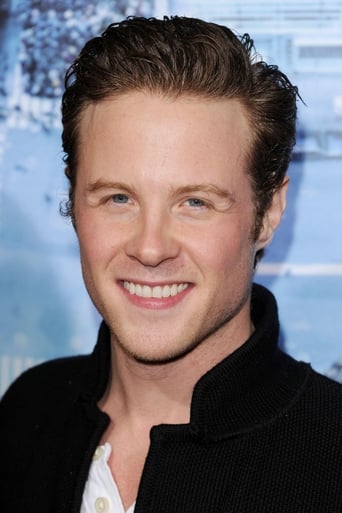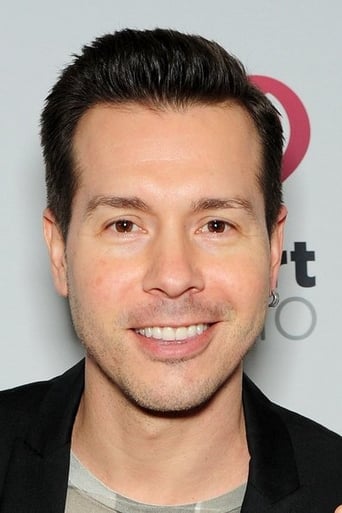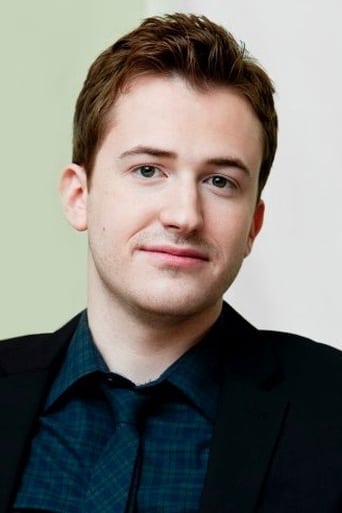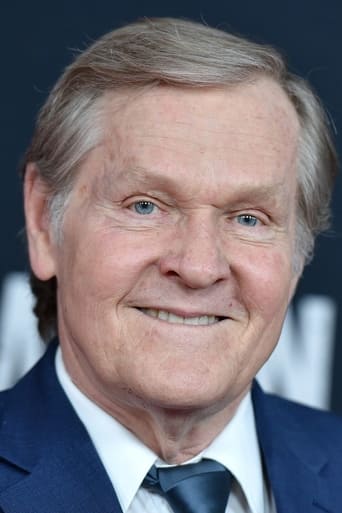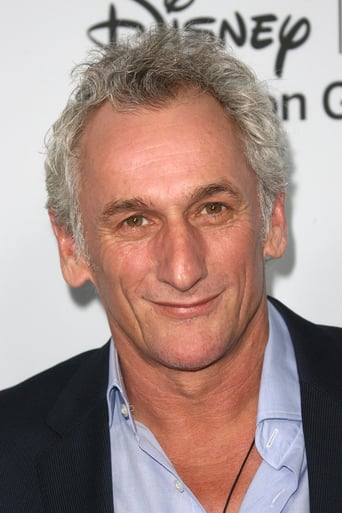Steinesongo
Too many fans seem to be blown away
GamerTab
That was an excellent one.
Tedfoldol
everything you have heard about this movie is true.
Joanna Mccarty
Amazing worth wacthing. So good. Biased but well made with many good points.
Ian
(Flash Review)While changing tact a little, The Pacific is impossible not to compare to Band of Brothers as it focuses more on the psychology of war rather than a deep immersion of characters. That change of tact made it hard for me to get as emotionally invested in the series. The characters were also flawed and occasionally unlikable, thus it took a while to emotionally connect with them if at all. The battles in the first few episodes occasionally felt repetitive and generic. Only toward the second half did character story lines develop as well as the amount of blood and gore; to the point of being unnecessary...and I've seen a large swath of war films. Aside from the stellar production quality, the most intriguing part were for the soldiers that survive long enough allow you to see their mental transitions through many battles. Fear to shock to horror to acceptance to recalibrating their own life's morality levels of humanity. A Thin Red Line is a similar comparison as it also focused on the mental aspects of being in war. Overall, this was very good and intense but lacked character emotional depth. Oh and I wish they gave specific titles to reach episode.
gogoschka-1
I'm guessing most of us watched 'The Pacific' for at least one of the following 3 reasons:1. We have an interest in history, particularly in WW2.2. We are fans of movies and television shows (well, the good ones anyway)3. We had seen - and loved - the previous Hanks/Spielberg co-production 'Band Of Brothers' and expected a mini-series on the same level.Now from reading some of the reviews here I gather that third reason was the most important one for many viewers - and it's also why 'The Pacific' apparently left quite a few people disappointed. As for me, I wasn't disappointed - I was devastated.I'm a lucky man; I've never had to suffer through a war. But I had relatives who did, and though they're all long gone now, I'll never forget their stories. War is the most extreme and outrageous experience humans can possibly endure, but there are many different aspects and layers to it, because a war is not a single experience: it's all the experiences of all the individuals who have to suffer through it, and no single film or TV show can cover all of them. 'Band Of Brothers' focused on certain aspects of a war, and it chose a narrative that helped emphasize what the core theme of the series was: the brotherhood of war. It was about people who retain their humanity and form the closest of bonds under the worst, most horrific circumstances.That inherently human element in 'BoB' was also why we could identify so well with the protagonists, and why we were - and still are - so deeply touched by what they had to go through. It's an outstandingly well made series, and I can't imagine how those experiences by those soldiers could have been portrayed better. Which is why 'The Pacific' doesn't even try. Instead, it goes almost in the opposite direction by choosing to focus on the sheer insanity of war: the relentless horror and despair of people losing their humanity and their struggle to regain it. Of course, just like 'BoB' it's also about the heroic sacrifices of those brave soldiers, but if there is a core theme in 'The Pacific' it's that of trauma: the trauma of having your humanity stripped from you and your personality shattered; the trauma of witnessing the complete disintegration of everything you thought you were and knowing you'll never be whole again.What we see in 'The Pacific' is Hell, plain and simple. It's scores and scores of anonymous, young Japanese soldiers running senselessly into machine gun fire, wave after wave, until the piles of their bodies are so high they block the sight for the machine gun; it's American soldiers barely older than kids in despair or completely numb from the sheer amount of random death around them; it's vibrant young men turning into barely alive husks whose only remaining focus is to survive - which means they have to kill other barely alive young men who will stop at nothing to kill them in turn; it's kids killing other kids like rats by any means at their disposal: guns, knives, flame-throwers or with their bare hands; it's people living among the rotting corpses of their dead comrades and enemies and completely losing any regard for human life. And the few moments where we witness how those kids get a brief taste of how precious and beautiful life could be make their fate all the more heartbreaking.Over large stretches, 'The Pacific' is devastating and depressing to watch, and though I found it never less than compelling, it's actually easy to see why many viewers who had hoped for a similarly engaging experience as in 'BoB' were left disappointed. But this is a different story about different people who fought in a different theater of the war and who went through different experiences, and once you stop comparing it to the story of the men in Easy Company from 'BoB', you'll find that, while different, in terms of sheer quality 'The Pacific' is every bit as good and as much of an outstanding achievement as its more popular predecessor.The realism, the performances, the music and the production values in the series are superb (this was a 200 million production after all), and the attention to historic detail is simply staggering. As for me, witnessing what these men went through left me devastated; yet I am grateful I've watched 'The Pacifc': because in its relentless depiction of the horrors of war it honors the sacrifice these brave young soldiers made in the hope future generations wouldn't have to do the same. I originally rated this series 9 stars out of 10, but upon a recent rewatch and with more knowledge of the war in the Pacific theater, it's clear that this is a 10/10. Outstanding.Favorite films: IMDb.com/list/mkjOKvqlSBs/Lesser-Known Masterpieces: imdb.com/list/ls070242495/Favorite TV-Shows reviewed: imdb.com/list/ls075552387/
BoomerDT
"The Pacific" is a very good TV series, some incredible cinematography, excellent staging and presentation of graphic battle scenes. It's the same time frame as BOB and tells the story as BOB did, of the citizen soldiers who came from all walks of life to quickly become soldiers, sailors and marines to fight the Axis powers from 1942-45. Of course, BOB is dealing with the European theater, from D-day to the eventual occupation of Germany, specifically through the life of Easy Company in the 101st Airborne. Meanwhile "The Pacific" is following the USMC in their island hopping campaigns, eventually leading to the occupation of Okinawa before the atomic bombs dropped on Japan forced their capitulation and undoubtedly saved perhaps 500K American casualties from an invasion of Japan.Having read the book a couple times and seeing BOB at least 4 times, my thoughts on why TP doesn't quite measure up:1] It's harder to follow and understand the story line. BOB uses a narrator in each of the episodes, usually the Lt/Capt/Maj Dick Winters character, who becomes the central focus, although each of the episodes is usually focusing on another character in Easy Company. It explains much better the background and objective of their various campaigns, such as the Normandy invasion and the subsequent battles to drive the Wehrmacht from Northern France, to the drops and battles in Holland, and then the Battle of the Bulge. TP shows us the gruesome invasions and carnage the USMC suffered in Guadalcanal, Peleliu, Iwo Jima and Okinawa, but doesn't delve much into the military objectives in taking these heavily fortified islands. Rather than focusing on one company, TP looks at these battles through 3 Marines, who have no connection to each other.2] The training sequence, which is always fascinating to learn how civilians are trained into becoming cohesive fighting men and build a camaraderie to not only depend but willingly sacrifice for each other, doesn't come until episode 8 "Iwo Jima" when Sgt. John Basilone, the hero of Guadalcanal and MOH recipient, volunteers to leave the cushy life style of speaking in bond drives to train new marine recruits. This was, BTW, my selection for the best episode in the series.Excellent performances from a young cast and thank goodness the producers of TP avoided the tendency of some many movie makers who fill war movies with a cast of actors in the 30's and 40's. The overwhelming majority of these soldiers were teenagers or young men in their early 20's.
SnoopyStyle
Ostensively, this follows 3 marines and their individual stories in the Pacific during WWII. Bob Leckie (James Badge Dale) is a small town reporter who join the marines at the start. Eugene Sledge (Joseph Mazzello) is a 90 pound weakling whose parents are reluctant to allow him to join. John Basilone (Jon Seda) comes from an Italian family who becomes a famous war hero.Right off the bat, this must be compared to 'Band of Brothers'. While they are both WWII mini-series focused on the soldiers, they really hit on two different tones. BoB is more patriotic, more action oriented, and the story flow with a natural climax. This one still has the overwhelming action but it's muddier, grittier, and uglier. At times, this feels like a Vietnam war movie or a tough Korean movie. Unlike BoB, the last episode of this series is possibly the most emotionally tough. BoB can be an adventure thriller at times but 'The Pacific' is always a psychological grind. The only problem I have is the third episode where they spend the whole episode in Melbourne. It has some interesting stories but it's a waste to spend the whole episode there. Leckie gets a girl but they don't even stay together. For most of the Pacific, there are some great stories and impressive action. It's just a different style of war TV show.




